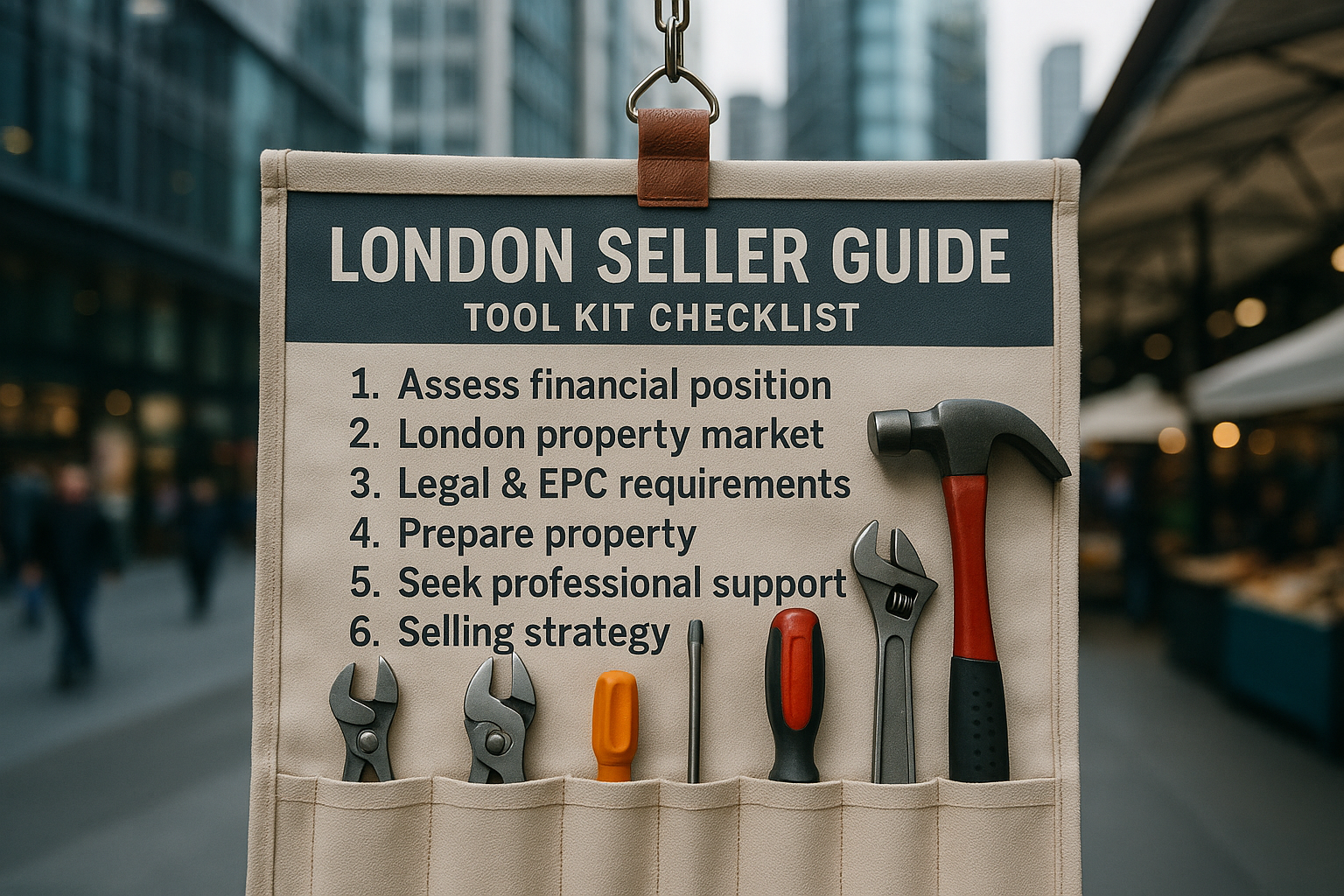Ultimate guide to selling your London home: checklist to prepare in 2025
 TheHub@Druce
TheHub@Druce- •
- 17 Apr 2025

Ultimate guide to selling your London home: checklist to prepare in 2025
Table of Contents
Ultimate guide to selling your London home: checklist to prepare in 2025
Ready to sell your home in London? Proper preparation is key to maximising your property’s value and ensuring a smooth sale in the competitive London property market. This comprehensive checklist outlines essential steps to check, do, and consider before listing your home in 2025. Follow these home-selling tips to attract buyers and close the deal efficiently.
1. Assess your financial position
- Review your mortgage: Contact your lender to confirm your outstanding mortgage balance and any early repayment penalties. If you’re relocating, check if your mortgage is portable to a new property.
- Calculate selling costs: Budget for estate agent fees (1-2% of the sale price), conveyancing fees (£1,500-£3,000), and removal costs. If selling a second home or investment property, account for Capital Gains Tax on any profits.
- Explore alternatives: Could a renovation or extension meet your needs instead of selling? With moving costs in London often surpassing £10,000, weigh whether selling your home is the best choice.
2. Analyse the London Property Market
- Research local trends: The London property market varies by borough, from Kensington to Lewisham. Use Rightmove or Zoopla to track sold prices in your area. Spring and autumn are peak seasons for selling, with higher buyer demand.
- Understand buyer behaviour: With mortgage rates hovering around 7% in 2025, buyers prioritise competitively priced homes. Setting a realistic price is critical to stand out in the London housing market.
- Check lease length: For leasehold properties, common in London flats, ensure the lease exceeds 80 years. Shorter leases can deter buyers due to costly extensions and mortgage restrictions.
3. Meet Legal and EPC Requirements
- Verify EPC status: An Energy Performance Certificate (EPC) is mandatory, with a minimum rating of E for rentals (and potentially C by 2030). Check the EPC Register by postcode and arrange a new assessment if your EPC is expired or below standard.
- Gather documentation: Collect title deeds, planning permissions, building regulation certificates, and warranties for recent upgrades (e.g., new windows or heating systems). For leasehold properties, prepare a Seller’s Leasehold Information Pack with service charge details.
- Confirm property status: If your home is tenanted, comply with tenancy laws. Selling probate properties or listed buildings requires extra steps, such as probate approval or listed building consent.
4. Prepare Your Property for Sale
- Address repairs: Fix minor issues like leaky taps, chipped paint, or loose fixtures. Unresolved repairs can lead to lower offers or concerns during buyer surveys.
- Declutter and neutralise: Clear out clutter, personal items, and bold decor to create a spacious, neutral space that appeals to buyers. Consider renting a storage unit to make rooms feel larger.
- Boost energy efficiency: Affordable upgrades like LED lighting or loft insulation can improve your EPC rating, attracting eco-conscious buyers. Check for grants through the Great British Insulation Scheme to offset costs.
5. Plan your home-selling strategy
- Choose a selling method: Decide between a high-street estate agent, an online agent, a private sale, or a cash buyer. High-street agents are ideal for navigating London’s competitive market, offering local expertise and chain management.
- Time your listing: Avoid slow periods like Christmas or summer holidays. February and March are optimal for family homes, aligning with school planning in the London property market.
- Plan your next move: Will you buy another home, rent temporarily, or leave homeownership? Selling first can make you chain-free, giving you an edge in negotiations.
6. Seek professional support
- Hire a conveyancer early: Instruct a solicitor to prepare contracts and gather documents, minimising delays after an offer is accepted. Compare quotes for a trusted, London-based conveyancer.
- Request valuation estimates: Invite 2-3 estate agents to appraise your property’s value. Be wary of inflated valuations designed to win your business, and ask for data on comparable sales.
- Consult a mortgage broker: If you’re buying another home, a broker can assess your borrowing capacity and secure an Agreement in Principle, strengthening your position as a buyer.
Selling your London home in 2025 demands thorough preparation and market savvy. By addressing these checklist items, you’ll position your property to attract serious buyers and achieve a seamless sale.
For expert support, please contact @Druce at +44 020 7043 1717, email [email protected], or visit www.druce.com.
Or you can pop in at your preferred branches
The #1 tip for a quick sale
London’s property market offers international buyers a wide range of opportunities, whether you're seeking a long-term investment, a high rental yield, a family home, or a second residence. With its stable market, high rental demand, world-class education system, business opportunities, and unmatched lifestyle.
